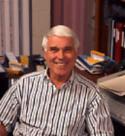
Biography:
Professor Allen's research interests are in the area of history and philosophy of biology - particularly genetics, embryology, and evolution - and their interrelationships between 1880 and 1950. This work focuses particularly in the early development of the Mendelian-chromosome theory as formulated in the work of T.H. Morgan and his group at Columbia University and later at the California Institute of Technology. Growing out of this work have been a series of studies of the scientific, economic, and social history of "eugenics" (defined in the early part of the century as "the science of human improvement through better breeding"). The history of eugenics provides a number of insights into the interrelationships between science and its social context, and raises many issues of ethical, legal, and social importance that are surfacing today in the midst of the Human Genome Project.
Abstract:
The Self-Direction of Human Evolution: Darwin, Mendel and Eugenics, 1900-1940. What Can We Learn from the Past?
Eugenics was a movement popular in most western countries, especially Britain, Germany and the United States in the first half of the twentieth century. Its aim was "The improvement of the human race by better breeding." Based on the then new and exciting field of Mendelian genetics, eugenicists argued that most human social behaviors and mental abilities were genetically determined, and that the way to solve recurrent social problems such as alcoholism, criminality, pauperism and depression was to encourage people considered to have "good genes" to breed more, and to discourage or prevent people considered to have :bad genes" from breeding at all. In the United States, for example, eugenicists lobbied for immigration restriction and compulsory sterilization of the so-called "genetically defective." The same ideas were taken to its extreme in Nazi Germany, whose own sterilization laws were built directly on those already passed by various states in the United States. To learn how we today can avoid falling into the same errors as our predecessors it is necessary to see exactly how these earlier beliefs fit into a larger and seemingly coherent, ethical framework